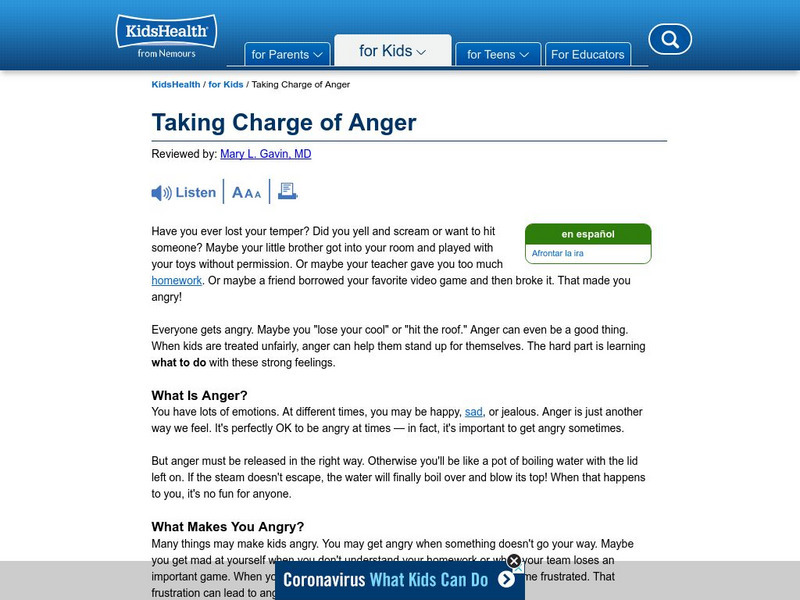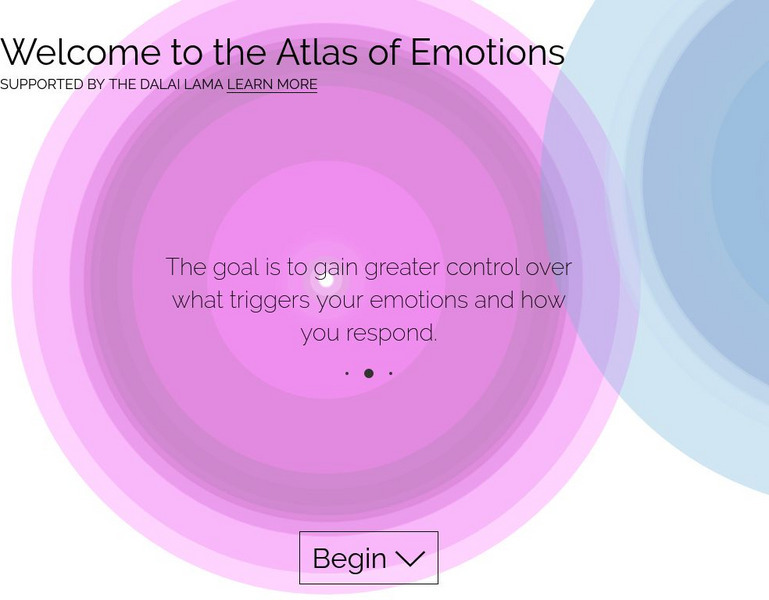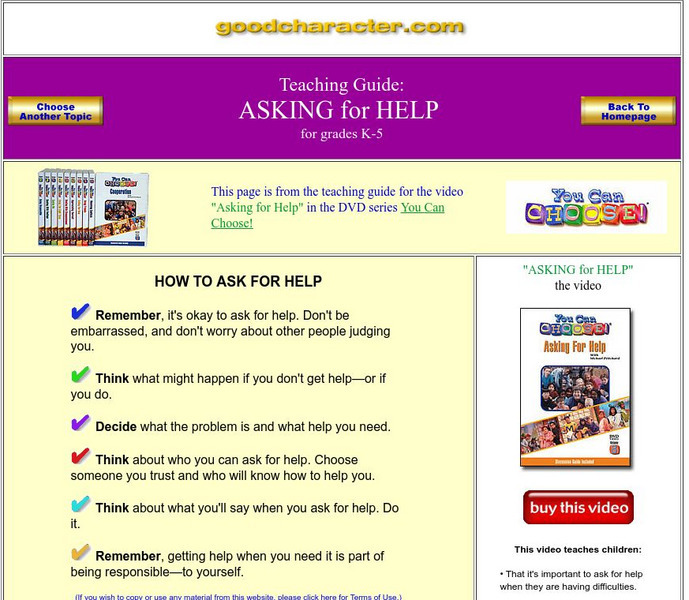DOGO Media
Dogo News: Scientists Say Being 'Hangry' Is Normal
Article reports on the science behind being "hangry" - a term that refers to the grumpiness that often accompanies hunger. Includes video.
Curated OER
Kids Health: Dealing With Anger
What happens when you feel angry? Do you throw things? Yell? Stomp your feet? Anger is an emotion that we all feel, but we deal with it in different ways. If you would like some ideas on ways to handle your anger, or how to tell if...
Other
The Ekmans' Atlas of Emotions
This atlas was designed by Dr. Paul Ekman and his daughter, Eve Ekman, at the request of the Dalai Lama. It is an interactive tool for exploring emotions, things that trigger different responses, self-awareness, and strategies for...
PBS
Pbs Learning Media: Daniel Tiger's Neighborhood: Life's Little Lessons: Use Your Words
In this set of resources, we will focus on how you can help children learn to use words to express how they are feeling so others will understand how they feel and/or what they what. Included are videos, classroom activities, and...
PBS
Pbs Learning Media: Everyday Learning: How Do You Feel Today?
This interactive helps children understand their emotions. Children are presented with scenarios (it's their birthday, their brother breaks a favorite toy, etc.) and asked to click on one of three icons that represent feeling happy, sad,...
Live Wire Media
Good Character: Dealing With Disappointment
Children learn ways of dealing with feelings after being disappointed through simple exercises and tips, as well as questions for discussion and writing prompts. Includes ideas for home assignments and notes for parents.
Live Wire Media
Good Character: Dealing With Feelings
Through the exercises presented at this website, students with "Learn that other kids experience the same kids of emotions as they do," "That it's important to understand what we're feeling," and "That we can often benefit by discussing...
Live Wire Media
Good Character: Asking for Help
If you need help, don't be afraid to ask! This website, in addition to providing tips to help you ask peers and adults for help, include discussion questions and activities through which students discuss what it means to need and get...
TED Talks
Ted: Ted Ed: An Exercise in Self Compassion
Here is an exercise from the School of Life on how to lessen the voices of self-flagellation and learn to appreciate the role of self-care in a good and fruitful life. [4:42]
Other
Do2learn.com: The Feelings Game
For this game, you are presented with several photographs and must choose the facial expression that matches the feeling you are given.
PBS
Pbs Learning Media: Arthur: Feelings
Young children experience a wide range of emotions that they might not be able to name yet. Help students explore emotions.
CommonLit
Common Lit: Themes: Love: How Does Love Emerge?
This is a collection of Grade-Leveled texts (3-12) to address the question, "How does love emerge?" Select a grade level and a collection of on grade-level reading passages on the topic comes up. [Free account registration required for...
CommonLit
Common Lit: Themes: Loneliness & Isolation: What Does It Mean to Feel Alone?
This is a collection of Grade-Leveled texts (3-12) to address the question, "What does it mean to feel alone?" Select a grade level and a collection of on grade-level reading passages on the topic comes up. [Free account registration...
Live Wire Media
Good Character: Handling Emotions
Know that it is normal to experience different emotions and learn positive ways to deal with your emotions. This website, which is meant to accompany a video on emotions and good character, provides questions for discussion, activity...
Committee for Children
Second Step: Grade 2: Lesson 12: Managing Embarrassment
This Second Step lesson will help students learn how to deal with an embarrassing situation.
Committee for Children
Second Step: Grade 2: Lesson 11: Introducing Emotion Management
In this Second Step lesson plan, 2nd graders will begin learning about how to manage their emotions.
Committee for Children
Second Step: Grade 1: Lesson 16: Managing Worry
This Second Step lesson will help students how to manage concerns and worries.
Committee for Children
Second Step: Grade 1: Lesson 16: Managing Worry
In this Second Step lesson, 1st graders will learn ways to manage their worries.
Committee for Children
Second Step: Grade 1: Lesson 15: Self Talk for Calming Down
In this Second Step instructional activity, 1st graders will learn how to use "self-talk" to calm down when they are upset.
Committee for Children
Second Step: Grade 1: Lesson 14: Calming Down Anger
For this Second Step lesson, 1st graders will learn how to calm down their anger.
Committee for Children
Second Step: Grade 1: Lesson 14: Calming Down Anger
For this Second Step lesson, 1st graders will learn the Calming-Down Steps that will help them use when they are angry.
Committee for Children
Second Step: Grade 1: Lesson 13: Strong Feelings
In this Second Step lesson, 1st graders will learn how to recognize their feelings so that they can calm themselves.
Committee for Children
Lesson 12: Identifying Our Own Feelings
In this Second Step lesson, 1st graders will learn how to recognize their feelings by identifying physical cues.
Committee for Children
Second Step: Grade 1: Lesson 12: Identifying Our Own Feelings
In this Second Step activity, 1st graders will learn how to identify feelings by paying attention to physical cues in their bodies.









